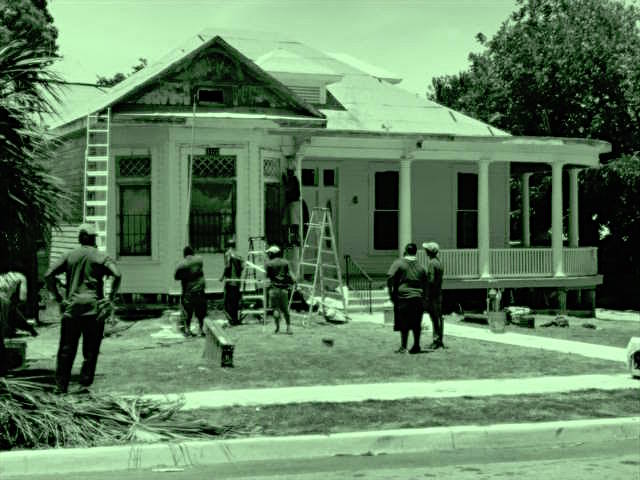The County Commissioners recently released its Tax Abatement Guidelines effective January 31, 2018 – December 31, 2020 which incentivizes market rate multi-family rental housing in the Center City. The Commission also released its Bexar County Skills Development Fund for Economic Development which incentivizes companies or businesses with twenty (20) or more employees to train new employees and pay the targeted Occupation Positions no less than $17.44 and no employee at project site less than $11.32 excluding benefits. Only 25% of the new employees are required to be Bexar County residents.
Precinct Four County Commissioner Tommy Calvert wrote an open letter, “Bexar County’s New Incentive Policy Benefits Top 10% Again” decrying the the fact that the proposal allows “only the top 10% of the larges businesses to train and hire 75% of people from out of town after you give them $250,000 for workforce training.” He states his objection to the abatement policy: “…When I asked the court to work with me to provide a market incentive to balance the decade long policy where Bexar County only gave tax abatements for multi-family developments that called for the highest rents and highest mortgages and put in place policies that benefit the vast majority of working people, the staff and court has provide (sic) inaction and excuses.”
On February 8, 2018, Commissioner Calvert held a Neighborhood Reinvestment Fund Committee Meeting at the DoSeum in which he discussed with community and business leaders the proposals and asked for solutions. Hans shot up across the large and crowded room. What happened next was a lively, diverse, and informative discussion of solutions.
In San Antonio, a city with high economic/geographic segregation, where zip code determines fate, affordable housing is tied to opportunity – jobs and education and health. Our tax dollars should be used to encourage workforce and affordable housing and helping people stay in their homes, not to incentivize market rate housing that most of the hard working citizens of San Antonio can ill afford.
The kind of incentivizing of development and market-rate housing that the Commissioners propose has led to displacement in our downtown neighborhoods. As home prices shoot up, my neighbor Danny stands before me and says he is struggling to stay in the home he grew up in, a home he has cared for and a neighborhood that is the only one he has known. “People tell me that my house is an investment,” he says, “But it is not an investment: It is my home! Where would I go?” We need funds for owner-occupied home rehab and neighborhood reinvestment and tax relief. Another neighbor, at my kitchen table, demands that we stop improving the neighborhood because she can’t afford it. We shouldn’t have to stop improving our neighborhoods in order to help people stay in their communities, but we should mitigate the unintended consequences of incentivized market rate development. If in n Beacon Hill and other downtown neighborhoods, the affordable housing is the still housing we live in now, it may not be for long.
Median-income households can afford less than half of the homes on the market, making the local housing market inherently unaffordable. The statistics on renters are worse yet: Renters compose 47% of the the housed population. As of 2010, more than half of renter households in Bexar County would not have been able to afford the two-bedroom fair market rent that requires an income of at least $33,680 or $16.19 per hour over a 40-hour work week. The average Bexar County worker earned $12.18. Since the Comprehensive Housing Needs Assessment and Strategic Housing Plan of San Antonio (which produced these figures) was produced in 2013, the housing situation has only worsened. Rents have steadily risen.
Teachers, firefighters, City staff, architects, healthcare workers, those at the 80% of AMI, whether they be renters or homeowners, are finding themselves priced out of the San Antonio downtown area. If renters stay, they struggle to pay unaffordable rent which can prevent them from achieving the dream of home ownership. Homeowners may soon join their ranks.
What we need is training programs for Bexar County residents, higher wages, the development of skilled industries (not tourism), and a way for neighborhood students to have access to to a decent education. What we need is housing that is affordable and neighborhoods that are resilient.
The SA Tomorrow Comprehensive Plan requires that developments that receive public funding or use public financing tools, provide affordable housing units – an important objective that this Commissioners Court has failed to require.
According to NALCAB’s recent study, “An Analysis of Housing Vulnerability in San Antonio” produced in January of this year, public policy and incentives that are proposed here have helped to make rental housing unaffordable. The highest multifamily effective rents were in areas with high concentrations of new production, often incentivized production.
In other words, the City incentivized an unaffordable rental housing market, using our tax dollars to worsen a housing crises. Now the County, learning nothing from the City’s errors, seems to be proposing to do the very same thing. It does not make any sense.
There is nothing wrong with market rate housing which will proliferate on its own as the market grows; but our tax dollars should be used to incentivize affordable and workforce housing and training that benefits the citizens of Bexar County, not just the market rate development community or corporations.
I understand the desire to raise the tax base by incentivizing market rate housing, but we can do that by raising the living standards of our citizens through education, opportunity, and housing.
On February 13th, after two hours of presentations (notably by Dr. Christine Drennon of Trinity University and SAISD Superintendent Pedro Martinez) and citizen input, Commissioner Calvert was able to successfully persuade the Commissioners Court to hire a housing consultant and create a citizen –staffed advisory committee. County Commissioner Tommy Calvert should be commended for working for affordable housing and seeking public engagement as the process.
